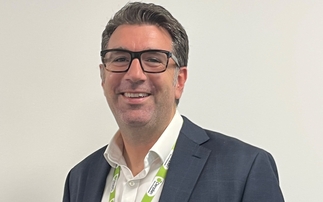While they are far from the most debated financial product available, cash plans can offer employers and staff an unmatched level of affordable healthcare, says Abby Bowman
According to the latest Laing & Buisson Health and Care Cover market report, the health insurance market has seen a resurgence in demand over the past year. All areas of the market, according to the report, are enjoying an increased level of interest and the corporate market demonstrating particular growth.
But does this indicate a bright future for healthcare cash plans, and how can providers and advisers take advantage of this opportunity?
Originally set up to help keep hospitals afloat and provide individuals with a way of accessing hospital treatment without financial worry, Hospital Savings and Saturday Funds have existed since before the birth of the NHS. However, with the arrival of the public health service in 1948, hospitals no longer needed this type of support, so these companies changed their focus and the healthcare cash plan was born.
Cash plans are a low cost type of healthplan that allow people to claim money back towards a range of healthcare costs such as dental, optical and physiotherapy. They are designed to encourage people to take care of their everyday health, helping to prevent any unexpected health costs that may crop up during the year, and better manage any costs that do crop up.
The sale of cash plans reached a high point in the mid-1960s with over four million people contributing to this type of scheme in the UK, before the numbers of subscribers started dropping steadily. Today, health cash plan members have started to rise once more with about 8.1% of the population owning a plan, according to Laing & Buisson.
The cash plan market, in line with the medical insurance market, is also regulated by the Financial Services Authority. This has helped to, not only increase the level of trust in these types of plans, but also ensure customers are treated fairly by all healthcare cash plan providers.
Employers may hold the key to improving health, but how do cash plan providers move from all this heritage, history and trust to ensure they are a viable option for the future?
Opportunity
It seems clear that there is a huge opportunity within the corporate market, especially as the latest Absence Survey from the Confederation of British Industry has found that companies that provide healthcare cover have lower rates of absence compared to those that do not.
The opportunities for the healthcare cash plan market seem to rest with providers taking advantage of three key areas:
n The opportunities represented by the changing NHS.
n The increasing role of the workplace to improving health of employees.
n Increasing levels of regulation in the workplace towards health and safety of employees.
Indeed, the findings from HSA's recent Annual Market Survey unveiled some interesting results in this area. It seems that companies can no longer rely on the NHS to help them look after the health of employees, and, therefore, there is a greater need for companies to take greater responsibility for workplace health.
For example, the survey reveals that 82% of companies do not believe that the NHS is operating in a way that provides them with sufficient support to manage sickness absence. As a result, 67% of companies believe they will have to pay for certain areas of health in order to manage the sickness absence of employees. A further 31% think they will have to purchase some form of private healthcare in order to manage employee absence in the future.
However, not only is the NHS not fully supporting employers, there is also increased pressure from the Government for companies to put in place measures that take into account the effect that the workplace has on health. On this point, the survey shows that 80% of companies believe the Government will increase duty-of-care responsibilities in the next five to 10 years.
In the future, therefore, companies are likely to be looking for healthcare options to help address a number of needs. For example, measures that can help reduce sickness absence and keep employees healthy and at work, as well as measures that work as a competitive tool to help with retention, and maintaining a healthy and productive workforce.
Healthcare cash plan providers have been embracing this demand in order to fulfil this new market need. The fact that cash plans comprise a number of benefits integrated into one plan makes them perfectly positioned for adding on new types of benefits, or designing packages with the aim of meeting a specific set of workplace requirements. In line with this, many cash plan providers have launched plans with additional benefits such as occupational health, health screening and employee assistance programmes. These, together with the traditional benefits of dental and optical, mean that the "new-style" healthcare cash plans are valued by both the employer and the employee through benefits they will regularly use and value.
Indeed, the latest Laing & Buisson report has clearly pointed the finger at innovation as the driver of the increase in demand by meeting the rising expectations from employers. Philip Blackburn from Laing & Buisson claims: "Corporate desire for flexible health, protection and wellbeing solutions, including an increasing range of employee support services, across employers of all shapes and sizes continues to underpin market strength and is beginning to drive forward growth again. Key to this strength has been insurers' ability to develop new and innovative solutions to meet the rising expectations of employers, and increased investment on resources to keep rising medical and healthcare costs in check."
Government policy could hold the key, as the market seems to be primed for growth - with companies concerned that the NHS is not adequately helping reduce sickness absence, and the Government likely to increase duty-of-care responsibilities.
However, cost is the biggest perceived barrier to investing in health in the future, with 78% of those surveyed believing that the rising cost of healthcare will mean that health benefits will become too expensive for the average workplace to afford.
This is the biggest gap that healthcare cash plans can help to fill. Traditional private medical insurance has often been viewed as too expensive in the past, especially as premiums tend to increase year on year. However, cash plan premiums are, generally, more static, as they are less susceptible to the impacts of some of the most costly areas of health, such as expensive cancer or heart drugs.
On top of this, the integrated nature of cash plans, in that they combine a number of types of benefits into one healthplan, means that they can be less expensive than if the benefits were to be purchased separately. It can also mean the administration required by the organisation could be reduced.
Another great advantage is that some elements of cash plans have been exempt from tax, which once again helps with affordability. For example, where a plan has an employee assistance programme (EAP) element, this has been traditionally exempt from tax as it provides welfare counselling, which may help employers to meet duty-of-care responsibilities. However, Her Majesty's Revenue and Customs is considering changing the tax-exempt status of these programmes, which may significantly impact their popularity and use.
With regards to the healthcare cash plan market, this could affect product development, in particular. Especially if providers are required to separate out the different elements of an EAP, between the counselling elements that would be subject to tax, such as finance and legal advice, and those that would not, such as welfare. This could make them far more complicated and potentially less attractive to companies, as well as more confusing for employees.
The Government should be encouraging companies and individuals to take steps to help improve health and wellbeing, and reward those taking responsibility, rather than providing the deterrent of greater tax. A healthier workplace could help contribute to a healthier future for our nation, especially as there are now 29 million people in employment in the UK, an increase of 180,000 in the space of a year.
Although cash plan providers have, generally, been associated with terms such as "mutuality" and "heritage", they have, in fact, proved themselves extremely resilient to change in their past. And this, perhaps, explains how they have managed to stand the test of time. By responding to changes in the healthcare system in the UK, and adapting to changes in market demand - this, ultimately, holds the key to the future of the market.
Abby Bowman is communications manager at HSA











